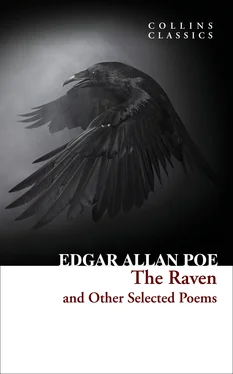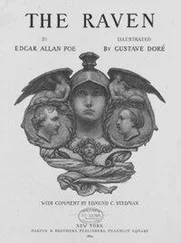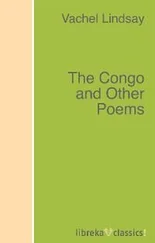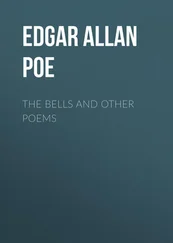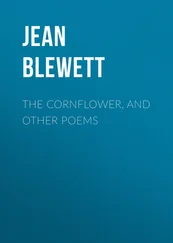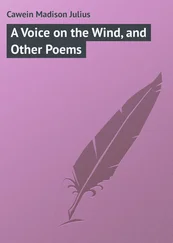(STANZAS)
How often we forget all time, when lone
Admiring Nature’s universal throne;
Her woods—her wilds—her mountains—the intense
Reply of Hers to Our intelligence!
I
In youth I have known one with whom the Earth
In secret communing held—as he with it,
In daylight, and in beauty, from his birth:
Whose fervid, flickering torch of life was lit
From the sun and stars, whence he had drawn forth
A passionate light such for his spirit was fit—
And yet that spirit knew—not in the hour
Of its own fervor—what had o’er it power.
II
Perhaps it may be that my mind is wrought
To a ferver by the moonbeam that hangs o’er,
But I will half believe that wild light fraught
With more of sovereignty than ancient lore
Hath ever told—or is it of a thought
The unembodied essence, and no more
That with a quickening spell doth o’er us pass
As dew of the night-time, o’er the summer grass?
III
Doth o’er us pass, when, as th’ expanding eye
To the loved object—so the tear to the lid
Will start, which lately slept in apathy?
And yet it need not be—(that object) hid
From us in life—but common—which doth lie
Each hour before us—but then only bid
With a strange sound, as of a harp-string broken
T’ awake us—’Tis a symbol and a token—
IV
Of what in other worlds shall be—and given
In beauty by our God, to those alone
Who otherwise would fall from life and Heaven
Drawn by their heart’s passion, and that tone,
That high tone of the spirit which hath striven
Though not with Faith—with godliness—whose throne
With desperate energy ’t hath beaten down;
Wearing its own deep feeling as a crown.
1827
SONG Song Spirits of the Dead Tamerlane “The Happiest Day, the Happiest Hour” The Lake Al Aaraaf Alone Elizabeth Fairy-Land Romance Sonnet—To Science To– – (“I heed not that my earthly lot”) To– – (“The bowers whereat, in dreams, I see”) To the River A Pæan Israfel Lenore The City in the Sea The Sleeper The Valley of Unrest To Helen (“Helen, thy beauty is to me”) Serenade The Coliseum To One in Paradise Hymn To F— — (“Beloved! amid the earnest woes”) To Frances S. Osgood Bridal Ballad Sonnet—To Zante The Haunted Palace Sonnet—Silence The Conqueror Worm Dream-Land Epigram for Wall Street Eulalie—A Song A Valentine To Marie Louise Shew (“Of all who hail thy presence as the morning”) Ulalume—A Ballad An Enigma To Marie Louise Shew (“Not long ago, the writer of these lines”) To Helen (“I saw thee once—once only— years ago”) Annabel Lee Eldorado For Annie The Bells To My Mother Classic Literature: Words and Phrases About the Publisher
I saw thee on thy bridal day—
When a burning blush came o’er thee,
Though happiness around thee lay,
The world all love before thee:
And in thine eye a kindling light
(Whatever it might be)
Was all on Earth my aching sight
Of Loveliness could see.
That blush, perhaps, was maiden shame—
As such it well may pass—
Though its glow hath raised a fiercer flame
In the breast of him, alas!
Who saw thee on that bridal day,
When that deep blush would come o’er thee,
Though happiness around thee lay,
The world all love before thee.
1827
SPIRITS OF THE DEAD Spirits of the Dead Tamerlane “The Happiest Day, the Happiest Hour” The Lake Al Aaraaf Alone Elizabeth Fairy-Land Romance Sonnet—To Science To– – (“I heed not that my earthly lot”) To– – (“The bowers whereat, in dreams, I see”) To the River A Pæan Israfel Lenore The City in the Sea The Sleeper The Valley of Unrest To Helen (“Helen, thy beauty is to me”) Serenade The Coliseum To One in Paradise Hymn To F— — (“Beloved! amid the earnest woes”) To Frances S. Osgood Bridal Ballad Sonnet—To Zante The Haunted Palace Sonnet—Silence The Conqueror Worm Dream-Land Epigram for Wall Street Eulalie—A Song A Valentine To Marie Louise Shew (“Of all who hail thy presence as the morning”) Ulalume—A Ballad An Enigma To Marie Louise Shew (“Not long ago, the writer of these lines”) To Helen (“I saw thee once—once only— years ago”) Annabel Lee Eldorado For Annie The Bells To My Mother Classic Literature: Words and Phrases About the Publisher
Thy soul shall find itself alone
’Mid dark thoughts of the gray tombstone
Not one, of all the crowd, to pry
Into thine hour of secrecy.
Be silent in that solitude
Which is not loneliness—for then
The spirits of the dead who stood
In life before thee are again
In death around thee—and their will
Shall overshadow thee: be still.
The night—tho’ clear—shall frown—
And the stars shall not look down
From their high thrones in the Heaven,
With light like Hope to mortals given—
But their red orbs, without beam,
To thy weariness shall seem
As a burning and a fever
Which would cling to thee forever.
Now are thoughts thou shalt not banish—
Now are visions ne’er to vanish—
From thy spirit shall they pass
No more—like dew-drops from the grass.
The breeze—the breath of God—is still—
And the mist upon the hill
Shadowy—shadowy—yet unbroken,
Is a symbol and a token—
How it hangs upon the trees,
A mystery of mysteries!
1827
TAMERLANE Tamerlane “The Happiest Day, the Happiest Hour” The Lake Al Aaraaf Alone Elizabeth Fairy-Land Romance Sonnet—To Science To– – (“I heed not that my earthly lot”) To– – (“The bowers whereat, in dreams, I see”) To the River A Pæan Israfel Lenore The City in the Sea The Sleeper The Valley of Unrest To Helen (“Helen, thy beauty is to me”) Serenade The Coliseum To One in Paradise Hymn To F— — (“Beloved! amid the earnest woes”) To Frances S. Osgood Bridal Ballad Sonnet—To Zante The Haunted Palace Sonnet—Silence The Conqueror Worm Dream-Land Epigram for Wall Street Eulalie—A Song A Valentine To Marie Louise Shew (“Of all who hail thy presence as the morning”) Ulalume—A Ballad An Enigma To Marie Louise Shew (“Not long ago, the writer of these lines”) To Helen (“I saw thee once—once only— years ago”) Annabel Lee Eldorado For Annie The Bells To My Mother Classic Literature: Words and Phrases About the Publisher
Kind solace in a dying hour!
Such, father, is not (now) my theme—
I will not madly deem that power
Of Earth may shrive me of the sin
Unearthly pride hath revelled in—
I have no time to dote or dream:
You call it hope—that fire of fire!
It is but agony of desire:
If I can hope—O God! I can—
Its fount is holier—more divine—
I would not call thee fool, old man,
But such is not a gift of thine.
Know thou the secret of a spirit
Bowed from its wild pride into shame
O yearning heart! I did inherit
Thy withering portion with the fame,
The searing glory which hath shone
Amid the Jewels of my throne,
Halo of Hell! and with a pain
Not Hell shall make me fear again—
O craving heart, for the lost flowers
And sunshine of my summer hours!
The undying voice of that dead time,
With its interminable chime,
Rings, in the spirit of a spell,
Upon thy emptiness—a knell.
I have not always been as now:
The fevered diadem on my brow
I claimed and won usurpingly—
Читать дальше
